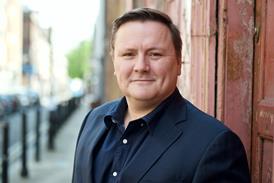Change could prove to be a boon for both C4 and BBC Studios
Moving to a new home or making new connections can be reinvigorating, and senior industry execs, a major producer and one of our biggest broadcasters will be hoping for a bounce from new surroundings.
While it’s important to reserve judgement until the overall effects of relocation play out, week one of Channel 4’s new era in Leeds is worth celebrating. It has begun the process of establishing hubs across the UK and changing its make-up forever, with around 50 staff reporting for duty at its temporary office this week.
That will rise to 100 by the end of the year and some 200 C4 staff will be based in the city by the time C4 moves into the Majestic building in the second half of 2020, offering those in the north of England new opportunities and sustainable careers.
Relocation is likely to define Alex Mahon’s tenure as chief executive, which in the blink of an eye has already spanned two years.
“The key will be ensuring C4’s staff outside of London are sufficiently empowered while remaining in step with their London counterparts and leaders”
The fundamental principles are sound – that a greater geographical spread of staff should engender a broader range of programming, and help viewers across the UK feel a stronger connection with the broadcaster – and the hard work begins now to turn that theory into practice.
The key will be ensuring C4’s staff outside of London are sufficiently empowered while remaining in step with their London counterparts and leaders.
Ultimately, C4 would be well served by being brave. Its Leeds HQ and Bristol and Glasgow hubs need the freedom to genuinely influence the heart of the broadcaster if they are be additive rather than a managerial distraction.
The same challenge will face C4 alumnus Ed Havard in his new role with NBC Entertainment as UK director of entertainment partnerships.
His task is to make the business “the first port of call for the vibrant UK creative community”, which will mean demonstrating he has the clout to get British formats away with the main network and its cable channel stablemates.
If he can become a genuine conduit to British indies finding more success in the US, then his role could become very influential.
The production sector feels awash with these new opportunities, and BBC Studios is at the forefront of exploiting them. Let’s not forget how sniffy many were about its prospects in the commercial marketplace. The dusty old BBC Productions couldn’t hope to compete with the ruthlessly honed indie sector, went the wisdom.

Yet it has won orders from Apple TV+, Quibi, YouTube and now Netflix, with a four-part series about pioneering surgery. That success with the new breed of customers will be reassuring internally and can act as a template for the wider production community.
There are now more new homes for good ideas than ever before.
- Chris Curtis is the editor in chief of Broadcast






























No comments yet